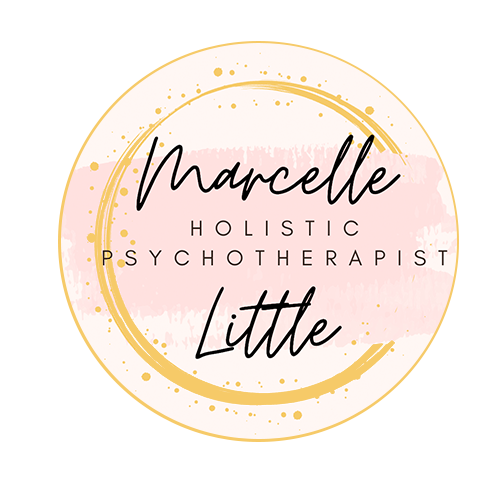
EMDR Therapy for Trauma and Emotional Triggers
Feeling Stuck in Old Emotional Patterns?
EMDR Offers a New Way Forward.
You’ve done the work.
You’ve gained insight.
And yet, some experiences still live in your body — and your nervous system responds to traumatic memories as if it’s happening all over again.
Maybe you find yourself overwhelmed by situations that don’t make sense logically.
Or you notice patterns of overreacting, withdrawing, or feeling numb — even when you’re doing your best to stay grounded.
EMDR therapy (Eye Movement Desensitization and Reprocessing) offers a gentle, structured approach to healing.
Without needing to relieve painful memories, EMDR helps you reprocess the emotions and beliefs that may be keeping you stuck — so you can move through life with more ease, trust, and connection to yourself.
You don't have to force yourself to "move on."
There’s another way to heal — and it can start with simply being right where you are.
Do Any of These Feel Familiar?
You’ve gained insight through traditional therapy, but certain patterns still show up.
Painful memories linger in the background, even when you try to move forward.
You notice emotional reactions — like perfectionism, people-pleasing, or shutdown — that feel hard to shift.
Past experiences, big or small, still seem to echo in your body or your relationships.
You feel disconnected at times from your intuition or your present-day self.
You long for more calm, clarity, and steadiness in your everyday life.
If any of these feel familiar, you’re not alone — and you’re not doing anything wrong.
Healing can happen differently.
A Different Path to Healing
EMDR therapy offers a supportive, evidence-based way to address stuck emotional patterns at their roots.
Through gentle bilateral stimulation, like guided eye movements, tapping, or sound, EMDR helps your brain and body.
It reprocesses experiences that felt overwhelming. This allows your nervous system to finish what it couldn't do before.
EMDR isn’t about digging up the past — it’s about offering your system the conditions it needs to move forward in a way that feels safer, more integrated, and more free.
Many women find EMDR especially supportive when working through:
Childhood wounds or attachment trauma
Painful relationship experiences
Grief, loss, or major life transitions
Emotional reactivity, anxiety, or feeling "stuck" in old cycles
You don’t have to re-experience the pain to heal it.
EMDR helps you meet yourself with more compassion, choice, and resilience.
Is EMDR Therapy a Good Fit for You?
EMDR might be a supportive next step if you:
Want to move beyond old emotional patterns that keep repeating
Feel ready to explore healing in a new, body-centered way
Are curious about how past experiences may still shape your present
Crave more steadiness, ease, and freedom in your emotional life
Feel safe enough — with support — to try something different
There’s no rush.
Healing unfolds at the pace your nervous system needs — and we’ll move together at a rhythm that feels right for you.
Let’s Explore It Together
Schedule Your Free Call— I’d be honored to walk alongside you.
If you’re curious about EMDR — or wondering if it’s the right fit for you — I invite you to schedule a free 15-minute consultation.
There’s no pressure to decide right away.
This is simply a space to explore your needs, ask questions, and see what might feel most supportive for you.
Frequently Asked Questions About EMDR
-
EMDR therapy (Eye Movement Desensitization and Reprocessing) is a structured, evidence-based approach that helps your brain reprocess distressing memories and emotions.
EMDR uses techniques like guided eye movements or tapping. These methods help your nervous system finish unresolved emotional responses. This allows you to heal without reliving traumatic experiences.
-
Unlike traditional talk therapy, which focuses primarily on discussing experiences and gaining insight, EMDR therapy works directly with the nervous system and memory processing pathways.
It helps rewire how past events are stored in your brain and body, leading to faster shifts in emotional reactions, beliefs, and behaviors — often without needing to talk through every detail.
-
EMDR therapy is especially supportive for women healing from trauma, emotional triggers, anxiety, childhood wounds, relationship pain, and major life transitions. This is a good choice if you feel stuck in your emotions. It can help if you struggle with reacting strongly. It is also for those who want a new way to heal, beyond regular therapy.
-
No. EMDR is designed to help you process trauma without re-experiencing it in full detail. You don’t need to talk about every painful memory. The goal is to support your brain in releasing the emotional charge around distressing experiences, at a pace that feels safe and manageable for you.
-
The timeline for EMDR therapy varies based on your individual needs, goals, and history. Some people notice significant changes in a few sessions, while others may work with EMDR over a longer period as part of a broader healing journey. We'll always tailor the process to your comfort and readiness.
-
Yes. EMDR is considered a safe and effective treatment when guided by a trained, licensed professional. We pace sessions carefully to ensure emotional safety. We work together to create a plan that feels supportive for you at every step.
-
Absolutely. EMDR is very effective for healing emotional triggers. It helps with perfectionism, self-doubt, anxiety, and patterns from smaller life experiences. These are often called "small t" traumas. You don't need a major traumatic event to benefit from the nervous system support EMDR provides.
-
If you still feel stuck after doing inner work, EMDR might help. It can also be useful if you notice the same emotional patterns repeating. It is also a good choice if you are curious about body-centered healing.
A free consultation can help you explore your needs and determine if EMDR aligns with your healing journey.
A free consultation can help you explore your needs and determine if EMDR aligns with your healing journey.

